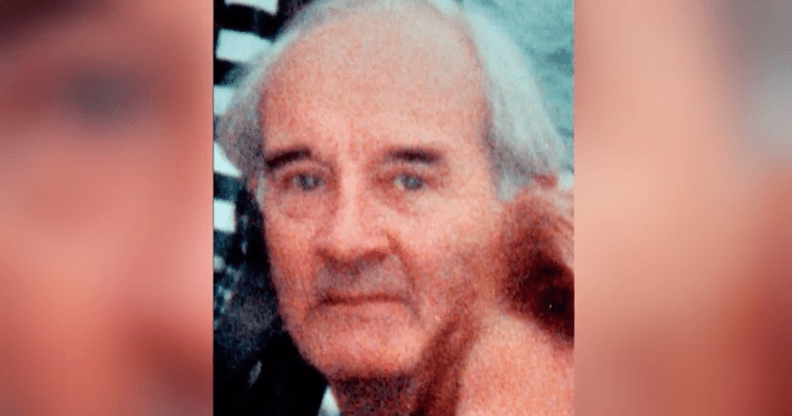Remembering two gay men whose gruesome deaths cast a dark shadow of homophobia on a quiet British city

Terry Sweet lost his life in the savage attack, while Bernard Hawkin was left permanently disabled (Screenshot: ITV)
This month marks 25 years since the brutal attack and torture of two gay men that cast a dark shadow over Plymouth’s LGBT+ community.
Just after midnight on 7 November 1995, the bodies of Terry Sweet and Bernard Hawken were found lying 200 yards apart in Central Park, outside a shelter that was considered a well-known meeting place for gay men at the time.
Their injuries were horrific. Both men had suffered blows to the head, and their faces and genitalia had been slashed and mutilated.
Terry, who was 64 years old, died at the scene, while 54-year-old Bernard survived the attack but was left brain damaged and in a wheelchair for the rest of his life. He died many years later as a result of his injuries.
Chillingly, the attack was carried out by three teenagers whose families were well known in the community: Richard Bownes, the son of a Plymouth City Council solicitor, Stuart Smith, the son of a golf club steward and Roberto Pace, whose parents ran a historical sea front café.
As the small seaside city struggled to comprehend how children from “good” backgrounds could carry out such a horrifying crime, Plymouth’s LGBT+ community was left reeling at the depth of hatred directed at them.
Alan Butler, founder of Pride in Plymouth, told ITV years later: “I just remember being really scared, and thinking Plymouth is a dangerous place for me to be and perhaps not a place I’m able to come out as a gay man. It was a scary time.”
Plymouth’s homophobic hatred was laid bare when, after the teens were jailed for life, their friends and followers desecrated the crime scene with vile graffiti. “In memory of Terry Sweet, may he rest in pieces… ha ha,” the thugs scrawled in spray paint. “No queers here, your [sic] banned or face death.”
On the path close to where Sweet was found, someone spray-painted the outline of a body next to the words: “Please step over spilt AIDS!”
Terry Sweet murder was a watershed moment.
The murder and its aftermath remains a shameful stain on the history of Plymouth, but it was also a watershed moment for many queer people, who were emboldened to speak out after a lifetime living in fear.
“I think it made people think they had to stand up and be counted,” Butler said. “People became a bit more open about their sexuality and their gender identity and started having those conversations. It ignited people.”
The case led to fundamental changes in the police, leading to more diversity and inclusion, and better connecting the force with then-hidden parts of society.
Former detective superintendent Stuart Newberry, who led the case, said: “It really brought it home that there were sections of the community that didn’t have the confidence in the police to report incidents. That was a real big lesson.
“It meant the police had to be much more aware of their conduct, of the way they interacted with members of the public and other agencies.”
While Plymouth has come a long way in 25 years and is now served by its first openly gay MP, Luke Pollard, the fact that he has repeatedly been targeted with homophobic graffiti indicates the city still has further to go.
Thank you to @PrideinPlymouth for laying flowers in memory of Terry Sweet who was murdered 25 years ago in Central Park, #plymouth. Homophobic attacks are sadly not confined to the past. Please take a moment to remember Terry today and commit yourself to stand up for #LGBT rights pic.twitter.com/SBz6ZTqUOi
— Luke Pollard MP (@LukePollard) November 7, 2020
Pollard is now backing plans for a permanent memorial in the park to Terry and Bernard to ensure their story is never forgotten.
“The murder, the other attacks and the graffiti which came afterwards showed the rotten underbelly of hatred in Plymouth,” Pollard told Plymouth Live.
“We’ve come an enormously long way and this anniversary needs to be not about remembering the murder, but reminding us that homophobic abuse is not confined to the recent past [and] there are people still being beaten for their sexual identity.
“We need to reflect on those changes, and what still needs to be done. We need something that fitting and celebratory. A tree or a bench, where people can have a moment of reflection, where everyone should be able to enjoy it – because everyone should be able to enjoy the same rights.”

